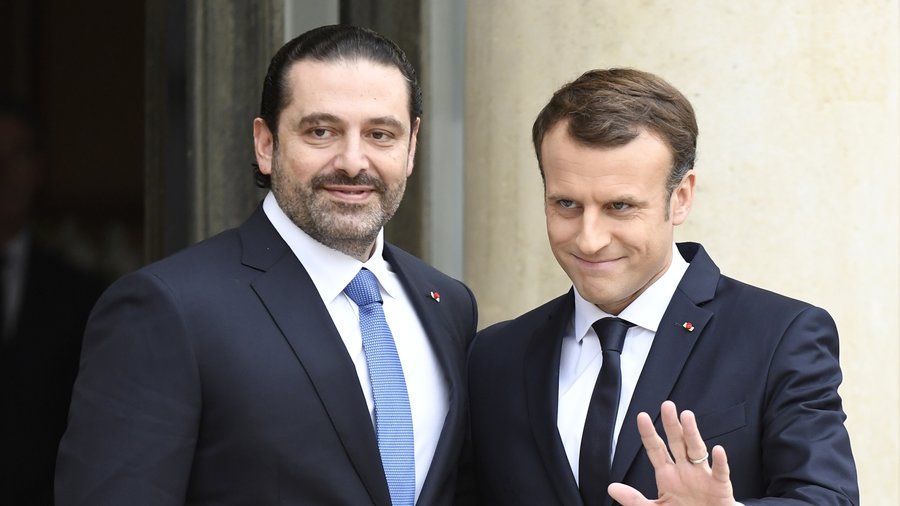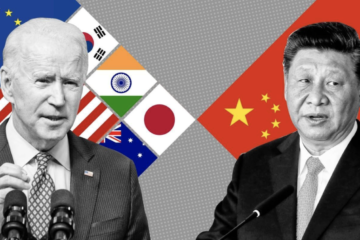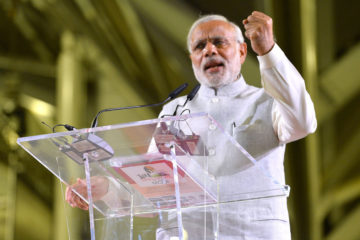The international agenda was quite intense for the French president in his very first months in office. A NATO summit, the G7, bilateral meetings with foreign state leaders at home and abroad. Every move made by the youngest president of the 5th Republic was scrutinised by the international press and foreign nations, with great expectations, but also a few doubts, as Emmanuel Macron only had limited international experience from his two years in government before.
From his long handshake with Donald Trump – more arm wrestling, really – and his highly commented “bromance” with Justin Trudeau at the G7 summit in Sicily to the invitation of Vladimir Putin in Versailles – not at the Elysée – the French president was featured in a succession of well-orchestrated, clever diplomatic moves in which communication, the press and social media have played a major role, painting Macron’s diplomacy as fresh, innovative and effective. However, other commentators wondered if this highly publicised diplomacy was not at the expense of the substance of the mission, which is clearly to reposition France as a great power and a mediator in the current world order.
France as a defender of global “common goods”
These more prudent analysts were served when the President delivered his first speech at a United Nations General Assembly in New York on 19 September, in which he unveiled with clarity what France’s diplomatic strategy would be in his five-year tenure of office. He defended a multilateral approach to global crises and the notion of “common goods” – ranging from peace, justice, climate and culture – while stressing the importance of the United Nations in resolving crises. A multilateral approach in which Macron sees nation-states as crucial actors, for they can mitigate risk and mediate conflict when international institutions fail to do so. In this redefined order, France is of course seen as playing an essential role, not as “one power” or a “middle-power” but as a “Great Power”.
How is this strategy taking shape after eight months in office? Although the President has been innovative in his style – with what we could call “photo ops” diplomatic operations, turning international events into his advantage – he seems to follow, in his actions, the traditions of Charles De Gaulle, François Mitterand and, to a certain extent, François Hollande: the reassertion of France’s special relationships with its allies, including Trump’s United States, with at the same time a clear statement that France will not hesitate to speak up and take a leading role in pressing international issues when it feels like it has to.
His relationship with Trump perfectly illustrates the first aspect: Macron established a “good” relationship with the newly elected American president, symbolically inviting him to Paris last July for Bastille Day celebrations. However, they remain far apart on issues like climate change, the Iran nuclear deal and, more recently, the Israeli-Palestinian conflict, all topics on which Macron never hesitates to voice his concerns publicly.
Macron in Africa and the Middle-East: innovation or continuity?
The French president went through a second intense diplomatic chapter more recently, with diplomatic operations in the Maghreb, sub-Saharan Africa and the Middle-East. The African tour began with visits to Burkina Faso, Ivory Coast and Ghana. His “speech to the youth” at the University of Ouagadougou was the most eagerly awaited moment of his trip. A speech that was prepared with quite innovative methods – notably the use of street interviews – and intended to present the “new relationship” between France, Europe and Africa, supposedly free from all shady post-colonial interferences in African states’ internal affairs. Stating “I am of a generation that doesn’t tell Africans what to do”, Macron promised renewal, enhancing his intention to create a real break, both in substance and in form, with what his predecessors could do.
However, Macron is far from being the first head of state to put a great African speech on his agenda. As early as July 2007, Nicolas Sarkozy was in Dakar, where his promise to end the Françafrique was somewhat overshadowed by his unfortunate considerations about “the African man”. Five years later, it was again in Dakar that François Hollande also turned the page of Françafrique, claiming to open up a true “partnership”. Macron’s subsequent visit to Algeria on December 6 had the same tone: a visit of “friendship”, again celebrating a special relationship and shared history – both bright and dark – and the great opportunities to come with enhanced cooperation.
Overall, this “African tour” was largely focused on the war against Jihadists in the Sahel region and the necessity to make a unified effort to tackle the rise of various extremist groups, notably Al-Qaeda in the Islamic Maghreb and the Al-Shabaab movement. Macron also regularly called for an effort to fight against those who finance terrorists, placing France as a military leader and mediator in a crisis that affects the whole region, in line with the diplomacy of the “common good” presented at the UN – which justifies French involvement in this context.

Bertrand Guay/AFP/Getty Images
The last steps of his trip, quick visits to Saudi Arabia and Qatar, are also illustrative of this strategy. When meeting with Qatar young emir Cheikh Tamim bin Hamad al-Thani, Macron showed he was very satisfied with the bilateral commercial relationship between both states, exampled by 12 billion Euros worth of contracts signed for Rafale, Airbus and A321 planes. However, he also showed firmness on terrorism issues, asking for a “very clear commitment” from Qatar in its fight against terrorism and radicalization and refusing any kind of “indulgence”. In late November, he had announced at the Europe-Africa summit in Abidjan that he would ask Qatar to no longer fund in France foundations or schools encouraging radical Islam, a request that seems all the more incongruous since the French president has obtained a similar commitment from Saudi Crown Prince Mohammed bin Salman. He has even offered to relay other countries’ demands by handing to Qatar and Saudi Arabia – two monarchies which are in an open crisis – a list of suspicious institutions, thus again putting itself in the position of a mediator at an international level, establishing a channel of communication that hardly existed beforehand on these topics.
And in the middle of all this, Macron managed to mediate the highly tense situation between Lebanon and Saudi Arabia, inviting Lebanese Prime Minister Hariri to the Elysée Palace in the midst of the crisis, and later issuing a joint declaration in which he praised Hariri’s decision to withdraw his resignation as “positive” and “essential”. The question can be asked: was this the appropriation of an event in which France had little to do with, or was France’s intervention instrumental in solving the crisis?
Again, a French president’s involvement in Middle-Eastern affairs is nothing new. There is a continuity with President Hollande who already made some diplomatic efforts to appear as the “peacemaker” for the Middle-East, convening a Middle-East peace conference in January just before Trump took office. Macron’s meeting with Netanyahu on 10 December, a few days after Trump’s declaration recognising Jerusalem as Israel’s capital, was particularly eventful as he told the Israeli leader that the recognition was a “threat to peace”. In a phone call with the American president before the declaration was made, Macron had “expressed his concern with the possibility that the United States might unilaterally recognize Jerusalem as capital of the State of Israel,” noting along with various other state leaders that this could put 30 years of diplomatic efforts in jeopardy. For the New York Times, Mr. Macron’s objections are hardly a surprise: “France nourishes its own ambitions as a peacemaker”.


